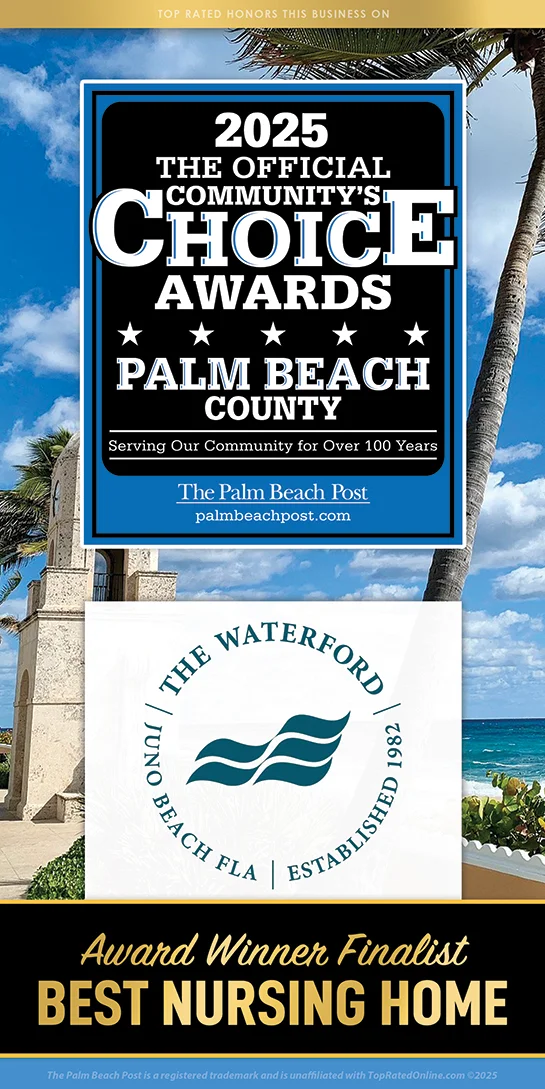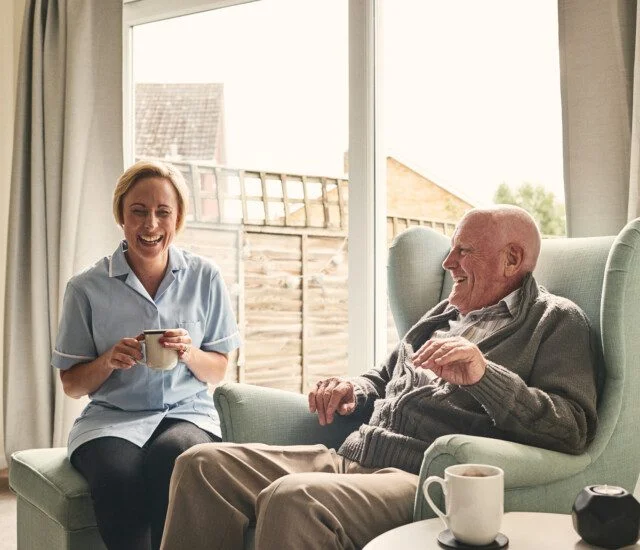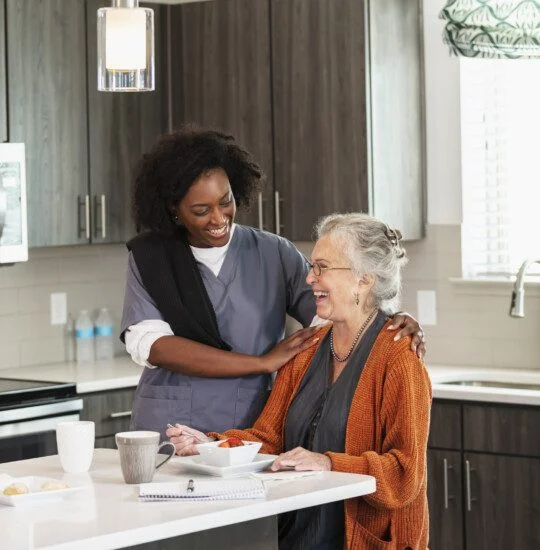
Skilled Nursing Services In Juno Beach, FL
Exceptional Care in Elevated Comfort
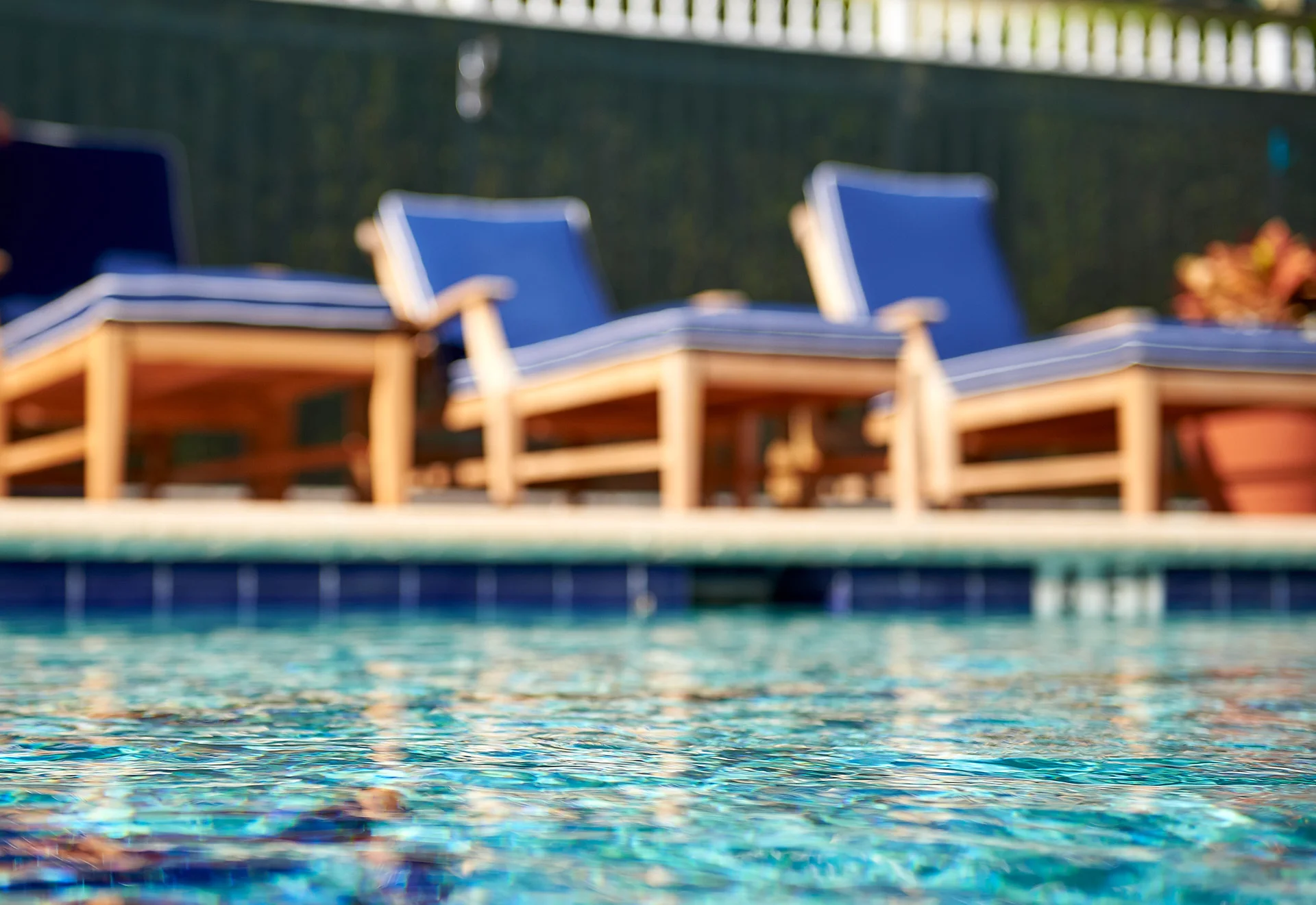
We can all make a difference in the lives of others in need because it is the most simple of gestures that make the most significant of differences.
Skilled Nursing And Long-term Care
Embrace Wellness and Comfort
Skilled Nursing Services
Devoted Care from Compassionate Experts
Always Here for You
24-hour care from from our passionate and skilled healthcare team
Nutritional guidance from an expert dietitian
Programs tailored to ignite your passions and rekindle joy
Seasoned therapists focusing on your physical, occupational, and speech needs
Restorative therapy to help maintain independence
Skilled Nursing Amenities
Embrace Every Moment
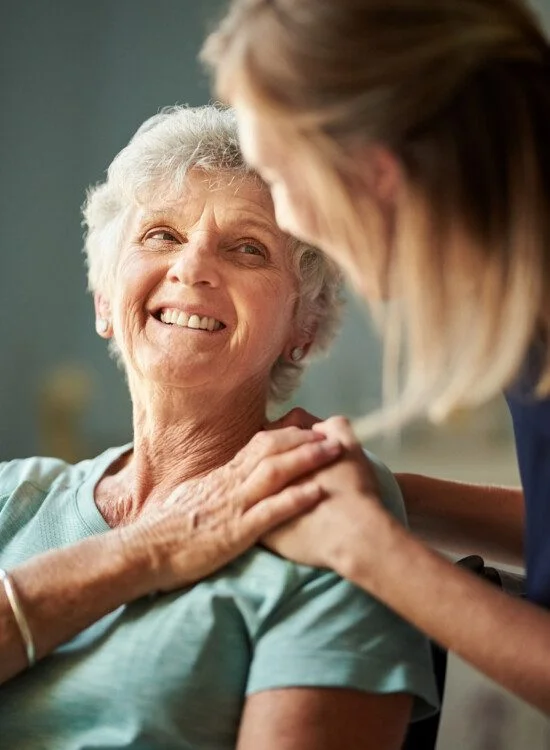
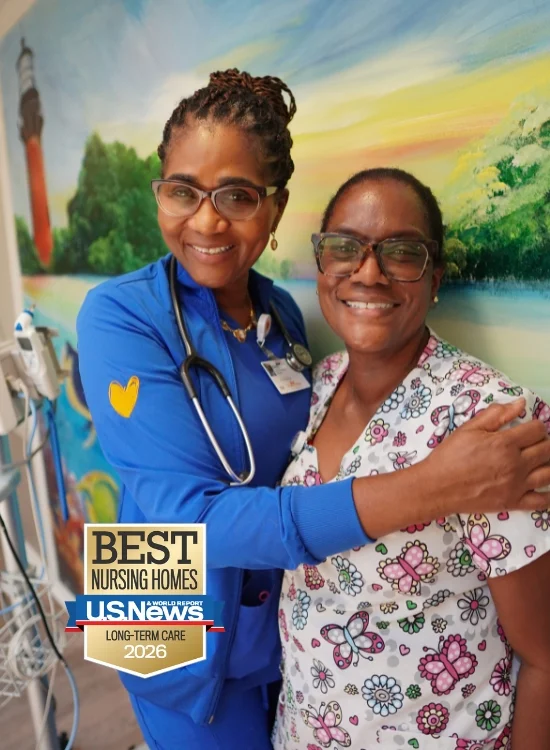
Senior Rehabilitation Award
Best Short and Long-Term Care Awards
Common Questions About Skilled Nursing
Skilled care by trained professionals may be necessary after a traumatic event such as an illness or injury. Some scenarios that may require skilled care for seniors include:
- Cardiac failure
- Chronic obstructive pulmonary disease (COPD)
- Congestive heart failure
- Diabetes
- Recuperation from falls
- Hip or bone fracture
- Post-orthopedic care
- Parkinson’s disease
- Stroke recovery
Your comfort is our priority. Fill your space with cherished photos, plants, or mementos that tell your story and bring warmth to your heart.
Not at all! At The Waterford, we accept admissions directly to our skilled nursing care.
On February 2020, the Centers for Disease Control and Prevention (CDC) published interim guidance entitled “Interim Infection Prevention and Control Recommendations for Patients with Confirmed Coronavirus Disease 2019 (COVID-19) or Persons Under Investigation (PUI) for COVID-19 in Healthcare Settings.” The CDC regularly updated their Guidance for Infection Control and Prevention of COVID-19 in Nursing Homes with multiple updates from 2020 through 2023 year-to-date. This information and directives from our state licensing agencies and professional trade organizations have been utilized to develop the following policy and procedure for Lifespace Communities, Inc., its affiliates, and subsidiaries (“Lifespace”). Additional guidance from 11-120 2 from our local, state, and federal agencies has also been incorporated into the Lifespace policy. On 07/03/2023, Florida adopted policy 59AER23-2 Emergency Rule for standards for the appropriate use of facial covering for infection control in skilled and assisted living settings.
In addition to this policy guidance, Florida communities are expected to comply with local, state, and national rules and regulations related to COVID-19. This policy also addresses the Emergency Temporary Standards introduced by OSHA in July 2021.
CMS updated its guidance for Masks and Face Coverings in Health Care Settings in May 2023.
Individuals with suspected or confirmed SARS-CoV-2 infection or other respiratory infection (e.g., those with runny nose, cough, sneeze); or individuals who had close contact (residents and visitors) or a higher-risk exposure (HCP) with someone with SARS-CoV-2 infection for ten days after their exposure indicating:
- Source control could be discontinued as a mitigation measure once the outbreak is over (e.g., no new cases of SARS-CoV-2 infection have been identified for 14 days)
- Continue to wear masks in the areas where you have active outbreaks in your community.
- High-risk and unvaccinated individuals should be encouraged to protect themselves and others by practicing social distancing and wearing a mask indoors and in groups.
- Anyone more comfortable wearing a mask may continue to do so.
- Residents and visitors have the right to visit without masks and are allowed to have physical contact. If visiting in a semi-private room and a roommate is present, it is safest for the visitor to wear a mask.
Florida Emergency Rule 59AER23-2 standards for the appropriate use of facial covering for infection control in skilled and assisted living settings indicates:
- Health care practitioners and health care providers may choose to require a resident to wear a facial covering only when the resident is in a common area of the health care setting and is exhibiting signs or symptoms of or has a diagnosed infectious disease that can be spread through droplet or airborne transmission.
- Healthcare practitioners and healthcare providers may choose to require a visitor to wear a facial covering only when the visitor is:
- Exhibiting signs or symptoms of or has a diagnosed infectious disease that can be spread through droplet or airborne transmission,
- In sterile areas of the health care setting or an area where sterile procedures are being performed,
- In a resident room, if the resident is exhibiting signs or symptoms of or has a diagnosed infectious disease that can be spread through droplet or airborne transmission, or
- Visiting a resident whose treating health care practitioner has diagnosed the resident with or confirmed a condition affecting the immune system in a manner that is known to increase the risk of transmission of an infection from team members without signs or symptoms of infection to a resident and whose treating practitioner has determined that the use of facial coverings is necessary for the resident’s safety.
- Opt-Out Requirements are as follows:
- Pursuant to 59AER23-2(2), healthcare practitioners and healthcare providers who choose to require a facial covering for any resident or visitor may have the option of opting out of wearing a facial covering if an alternative method of infection control or infectious disease prevention is available.
- Healthcare practitioners and healthcare providers must allow an employee to opt out of facial covering requirements unless an employee is:
- Conducting sterile procedures,
- Working in a sterile area,
- Working with a resident whose treating health care practitioner has diagnosed the resident with or confirmed a condition affecting the immune system in a manner that is known to increase the risk of transmission of an infection from team members without signs or symptoms of infection to a resident and whose treating practitioner has determined that the use of facial coverings is necessary for the resident’s safety,
- With a resident on droplet or airborne isolation, or
- Engaging in non-clinical potentially hazardous activities requiring facial coverings to prevent physical injury or harm per industry standards.
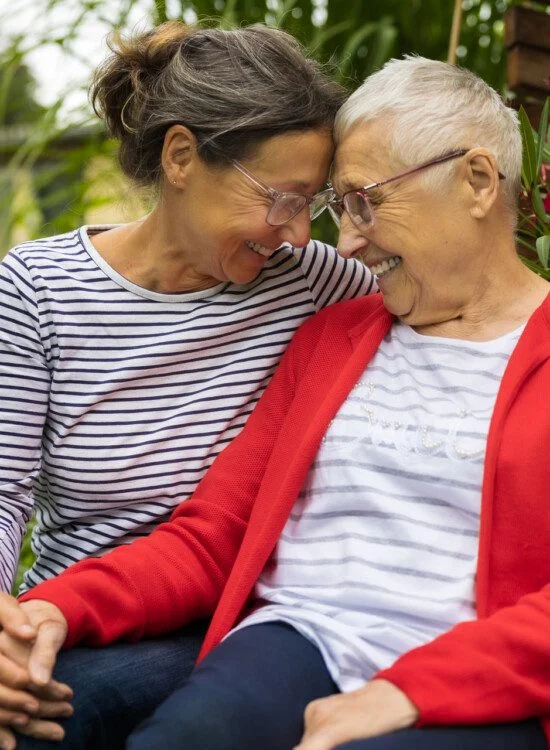
Skilled Nursing and More
Additional Care Options
